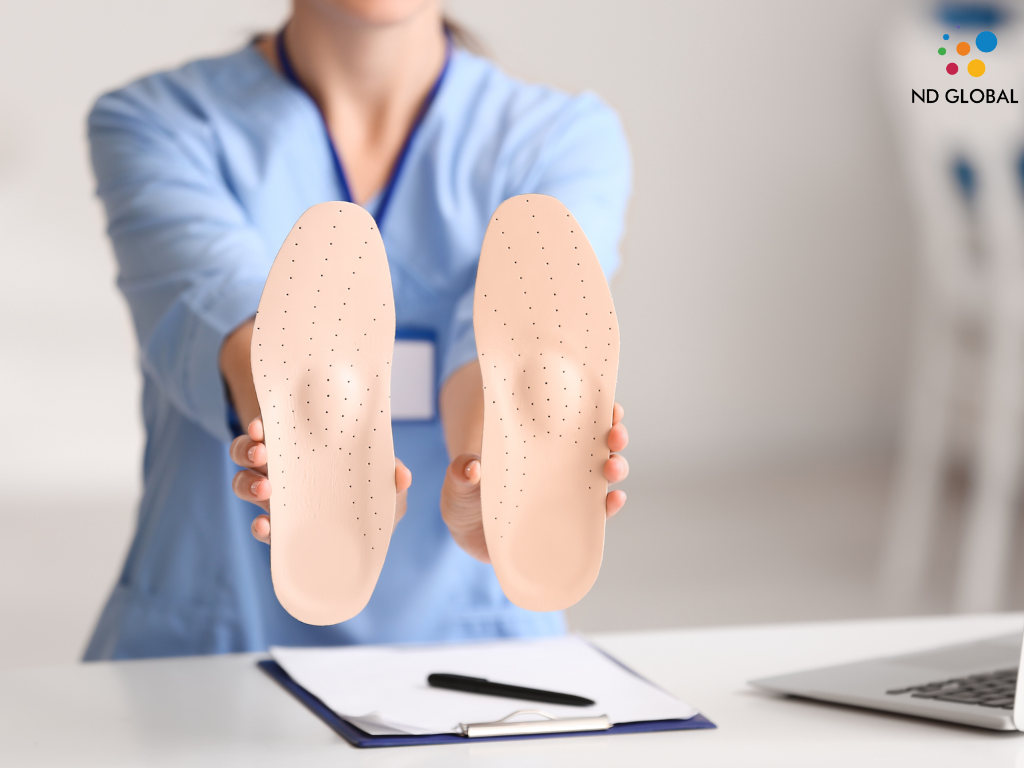Introduction – Registered nurses (RNs) focusing on musculoskeletal disorders are known as orthopedic nurses. Patients with long-term orthopedic disorders, those recovering from orthopedic procedures, and those with fractured bones are all under the care of orthopedic nurses. Osteoporosis, joint replacements, arthritis, fractures, arthritis, and hereditary abnormalities are some orthopedic problems. Pain treatment, mobility aids, casts, and traction are all topics that orthopedic nurses are knowledgeable about. Orthopedic nurses help doctors prepare for surgery and support patients during their recovery after the treatment when musculoskeletal disorders necessitate it. Even operating rooms may be used by orthopedic nurses. By specializing in orthopedic nursing, you may actively improve people’s lives while having a rewarding job and a competitive salary.
Determining whether orthopedic nursing is the proper career option for you can be aided by comprehending the essential elements of the field and the application process. Orthopedic nurses are employed in outpatient clinics, offices, and hospital units. They provide care for both men and women and work with patients of all ages. They must, therefore, be knowledgeable about a wide range of orthopedic ailments, treatments, and procedures. Depending on their workplace, orthopedic nurses perform a range of shifts. While orthopedic nurses on hospital inpatient units can work day, evening, or night shifts, office and outpatient nurses often work during the day. Those with orthopedic disorders and complications receive Assistance and education from orthopedic nurses. They assist with inpatient, outpatient, and office procedures. Orthopedic nurses support, educate, and advocate for patients during this critical period.
Registered nurses (RNs) specializing in treating patients with musculoskeletal system problems are known as orthopedic nurses. They help patients who are managing chronic musculoskeletal disorders, have had orthopedic surgery, or have suffered fractures.
An orthopedic nurse’s primary responsibilities include the following:
- Evaluation of the patient. To develop well-informed treatment regimens, orthopedic nurses assess their patients’ musculoskeletal problems, mobility, and pain levels.
Following surgery.
- Orthopaedic nurses offer postoperative care following joint replacement or fracture repair procedures. This can involve tending to wounds and checking for infection symptoms in patients.
- Assistance with rehabilitation. Physical therapists and orthopedic nurses may collaborate closely to aid patients in their recovery from injuries. This could entail giving patients mobility exercises or encouraging their recuperation.
- Pain control. Orthopedic nurses play a vital role in helping patients manage their pain by providing nonpharmacological pain management therapies like heat and cold treatment and drug administration.
How to Become a Nurse in Orthopaedics
Experience working in emergency rooms, surgery suites, and critical care departments can benefit nurses pursuing a career in orthopedics. But you’ll need to finish your schooling first.
Step 1: Decide if this is the proper work for you: As an orthopedic nurse, you will frequently interact with patients before, during, and following invasive procedures. They can require Assistance moving, be in discomfort, and be terrified. Ensure you feel comfortable in operating rooms and surgical suites before working there.
Step 2: Get a degree in nursing: Enrol in a four-year Bachelor of Science in Nursing (BSN) program or a two-year Associate Degree in Nursing (ADN). Make sure the program and school you attend are accredited. If you don’t, you won’t be able to take the exam needed to become an RN, and your credits might not be accepted if you decide to switch institutions.
Step 3: Attend and complete the NCLEX: Nursing school graduates must pass the National Council Licensure Examination, or NCLEX, to become registered nurses. The computerized exam consists primarily of multiple-choice questions covering various nursing-related topics.
Step 4: Obtain an RN license: After passing the NCLEX, you will work with the nursing board in your state to complete any remaining criteria and obtain a license.
Step 5: Get practical experience in the industry: If you’re an RN hoping to work in orthopedics, you should usually obtain experience in an orthopedic-focused department or facility, including a surgery unit, emergency room, or long-term care facility. Certain orthopedic businesses prefer experienced nurses. Don’t let that stop you: Many employers are willing to hire recently graduated nurses who want to obtain experience and certification.
Step 6: Obtain your certification: To show that you are dedicated to providing the best care possible, consider getting an optional orthopedic nursing certification, which requires nurses to complete a specific amount of work experience hours. The faster you complete your certification hours, the more experience you have.
Benefits & Drawbacks:
Becoming an orthopedics nurse has advantages and disadvantages, just like any other specialty.
Pros:
- Specialised Knowledge: Registered Nurses (RNs) focusing on orthopedic disorders, surgical procedures, and rehabilitation acquire specialized knowledge and abilities.
- Impactful Care: Orthopaedic registered nurses directly affect patients’ mobility, pain management, and general quality of life by supporting orthopedic procedures and overseeing patient recovery.
- Possibilities for Collaboration: By collaborating closely with orthopedic surgeons, physical therapists, and other medical specialists, orthopedic registered nurses promote professional development.
Diverse Settings: RNs with expertise in orthopedics can find employment in various healthcare facilities, such as ambulatory surgical centers, hospitals, orthopedic clinics, and rehabilitation facilities.
Cons:
- Physical Demands: Assisting with patient positioning and movement may call for orthopedic registered nurses, which can be physically taxing and possibly strenuous.
- High-Stress Environment: Managing postoperative problems and working in a surgical setting can be demanding and fast-paced.
- Emotional Difficulties: RNs in orthopedics may work with patients with serious injuries or long-term illnesses, which might provide emotional difficulties.
- Restricted Work Hours: A Few RNs in Orthopaedics.
Conclusion: Becoming an orthopedic nurse offers a rewarding career path filled with opportunities to directly impact patients’ lives. They work closely with orthopedic surgeons, physical therapists, and other medical professionals, promoting collaboration and professional growth. Despite the challenges, the fulfillment of helping patients regain mobility, manage pain, and improve their quality of life makes orthopedic nursing a rewarding choice for many healthcare professionals. With dedication, ongoing learning, and a commitment to patient care, orthopedic nurses play a vital role in the healthcare system, making a positive difference in the lives of their patients every day.
How ND Global can help: ND Global, as a staffing agency specializing in healthcare, plays a crucial role in helping healthcare facilities find qualified orthopedic nurses. Here’s how we assist:
- Recruitment Expertise: We have a network of experienced healthcare professionals, including orthopedic nurses, who are actively seeking employment opportunities. Our recruitment team efficiently matches the skills and qualifications of orthopedic nurses with the needs of healthcare facilities.
- Access to Talent Pool: Through our extensive database and recruitment channels, we quickly identify and connect with orthopedic nurses who meet the specific requirements of our clients. This ensures a streamlined hiring process and reduces time-to-fill vacancies.
- Screening and Assessment: We conduct thorough screening and assessment processes to ensure that the orthopedic nurses we recommend possess the necessary skills, experience, and certifications required by healthcare facilities. This helps our clients find candidates who are well-suited for their roles.
- Flexibility: Whether healthcare facilities need permanent staff, temporary placements, or travel nurses, we provide flexible staffing solutions tailored to their needs. This ensures they have access to orthopedic nursing talent whenever and wherever they need it.
- Ongoing Support: We provide ongoing support to both our clients and candidates throughout the hiring process and beyond. Our goal is to facilitate successful placements and foster long-term relationships between healthcare facilities and orthopedic nurses.
Overall, ND Global serves as a valuable partner for healthcare facilities seeking to fill orthopedic nursing positions efficiently and effectively, ensuring high-quality patient care and optimal staffing levels.










